
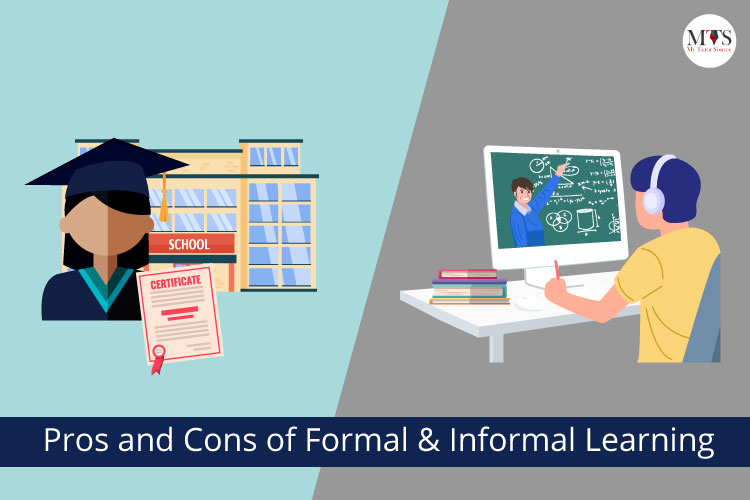
Education is the process of gaining or imparting knowledge and being successful later. This whole process demands learning, and it is done in many ways. And to acquire knowledge, you have to undergo at least each process of learning. ‘Learning’ gives us the idea of classes, extracurricular activities, syllabus, structured rooms, and the entire academic process that our kids or we experience. Even though you learn daily from incidents you face, people you meet, or the experiences, the list goes on. Today, you will learn about the learning types an education sector or the workplace follows: formal and informal learning.
Following are the details of these two categories of learning with their pros and cons.
The meaning of the word ‘Formal’ is well-structured, certified, or official in the dictionary. Formal learning is also known as formal education and educational platforms, either online or traditional, focusing on providing and creating training programs with specific objectives or goals. In another way, you can say it’s an organized, systematic, and goal-driven learning method within the premises of an area.
The best example of formal learning is school, colleges, and university, where the institution’s objectives are not explicit for the learner. Some of you might know the concept of formal learning or education as ‘synchronous,’ in which students are bound to attend a class at the same time and place. A set of objectives and goals are assigned to each student, and they have to accomplish them to get a promotion. Moreover, all students have to give the exam under the supervision of highly professional teachers and with a properly planned syllabus acquired by the institution.
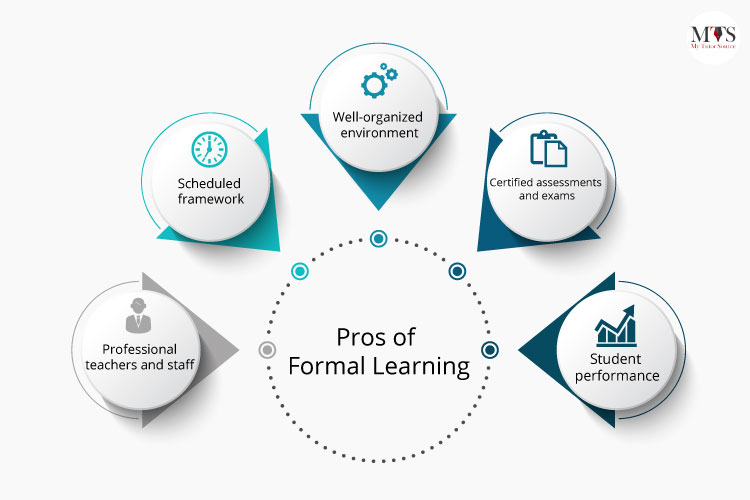
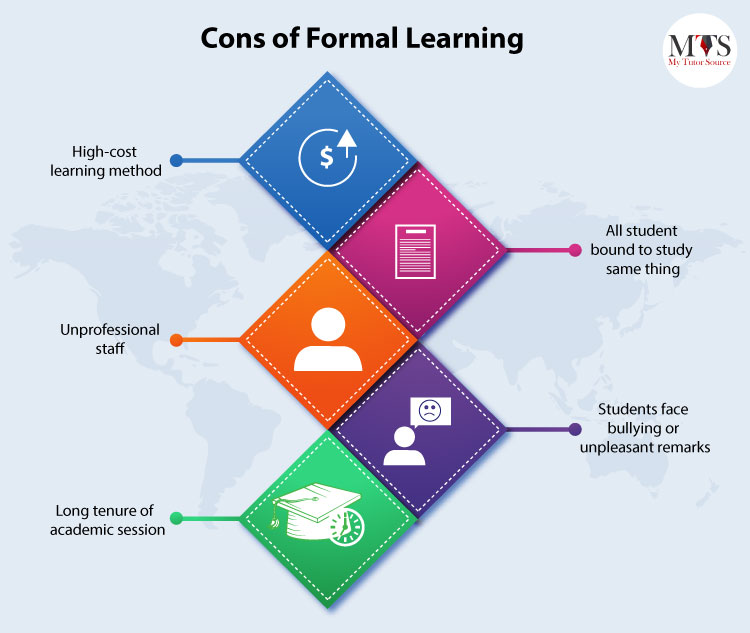
Informal means something casual, natural, easy-going, or unofficial. Informal learning is also known as informal education. It is the kind of knowledge someone gains from the Internet, browse it on their own, or register for online training. In other words, things you learn outside the formal environment are called informal learning. Such knowledge is gained under the influence of society or surroundings without any theoretical practices like cooking, swimming, or driving.
Another example of informal learning is your mother tongue because you do not need an academic institute to learn ‘how to speak’ this language. You adapt the knowledge of language from your surroundings. But to learn how to write it, you are moved to a formal learning technique. Some of you might know the concept of informal learning or education as ‘asynchronous,’ in which students are not restricted to time and place. They are free to learn or attend the class on their own, anytime and anywhere. Moreover, it is the learning method that everybody is a part of daily, knowingly or unknowingly.
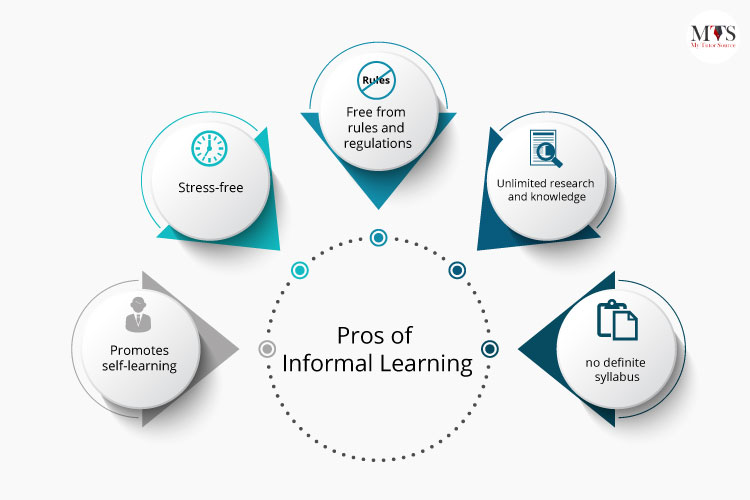
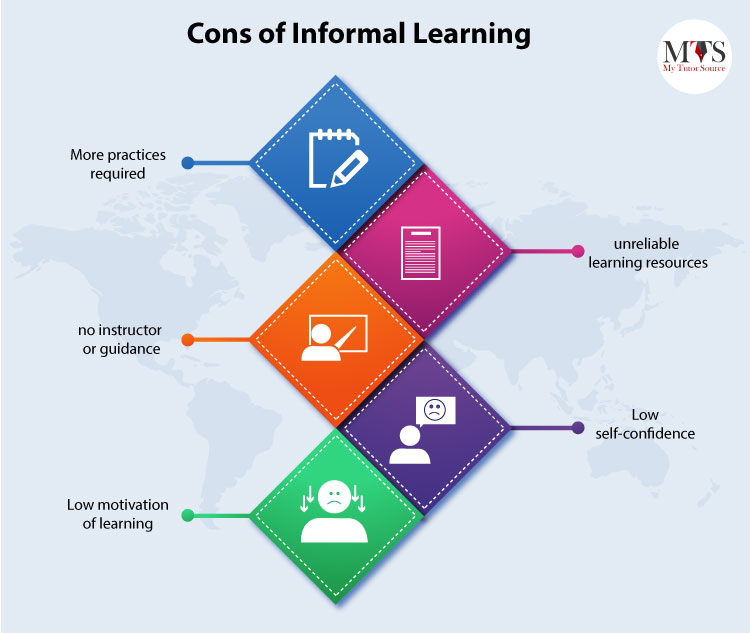
There is no right or wrong when choosing between the Formal learning method and the Informal learning method. Both are essential and depend on the learner type or their style. You cannot rely on one learning method to go far in life and ignore the other one entirely. Both are the ingredients of high-quality life that needs to excel; however, the limitations are applied.
The formal learner should not evaluate their progress or success rate on the grades they achieve, and they should explore other means of gaining knowledge. Similarly, informal learners do not believe everything they learn on their own, and they should communicate with experienced beings or practice something regularly to be an expert.
Here we conclude, to develop the personality and character of your kid or yours, you need to focus on all learning methods this world has to offer. This mixed bag of learning methods encourages one to learn more and be a better human being. But always keep in mind the pros and cons of formal and informal language because you cannot deny that everything has two sides, so learn and unlearn daily. Also, remember what Albert Einstein has said to us:
“Wisdom is not only a product of schooling but of the lifelong attempt to acquire it.”
― Albert Einstein